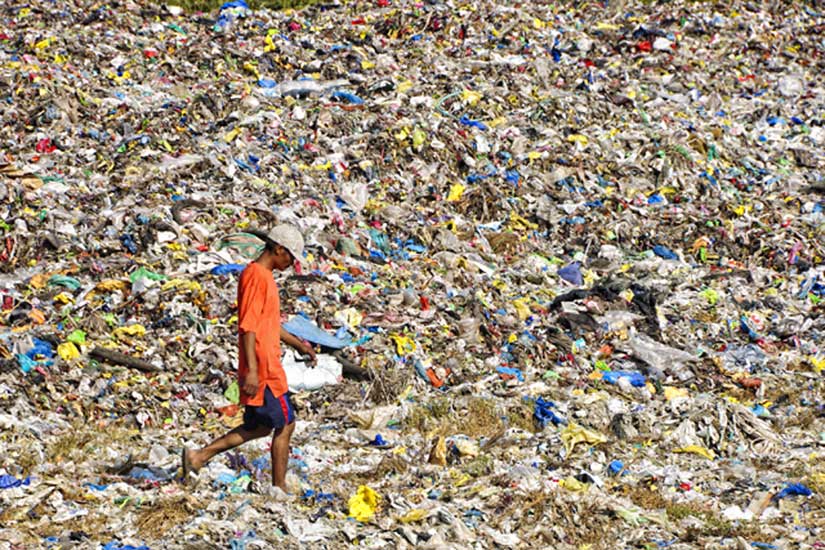
Introduction:
Recycling plays a crucial role in reducing waste and pollution, making it an essential solution for addressing the environmental sustainability crisis. By properly sorting and processing waste materials, recycling helps conserve resources and minimize the negative impact on the environment.
Historical Background:
Recycling has a long history that dates back to ancient civilizations. Evidence of recycling can be traced back to ancient Rome and Greece, where metal scraps were melted down and reused. Over time, recycling practices have evolved to include a wider range of materials such as paper, glass, plastics, and electronic waste. Today, recycling has become an integral part of waste management strategies worldwide, aiming to minimize waste sent to landfills and promote sustainable resource management.
Key Concepts and Definitions:
Recycling is the process of converting waste materials into reusable materials. It takes various forms, including primary, secondary, and tertiary recycling. Primary recycling involves reusing materials in their original form, while secondary recycling involves converting materials into new products. Tertiary recycling refers to extracting raw materials from waste materials. Landfill waste refers to the disposal of waste in designated areas, which can contribute to environmental pollution. Pollution, in this context, refers to the contamination of the environment as a result of waste disposal, leading to adverse effects on air, water, and soil quality.
Main Discussion Points:
Environmental Benefits of Recycling
Recycling significantly reduces the need for raw material extraction. By reusing materials, recycling helps conserve natural resources and reduces the environmental impact associated with extraction and processing. Additionally, recycling conserves energy and reduces greenhouse gas emissions by minimizing the energy-intensive processes required in the production of new materials. Moreover, recycling plays a vital role in improving air and water quality by reducing the release of harmful pollutants into the environment.
Waste Reduction and Landfill Management
One of the primary benefits of recycling is diverting waste from landfills. By recycling materials, less waste is sent to landfills, easing the burden on limited landfill space. Landfills pose various capacity and space issues, including the risk of groundwater contamination and the emission of harmful gases. Recycling helps alleviate these concerns by reducing the amount of waste that needs to be disposed of in landfills. Additionally, reducing landfill waste through recycling presents economic benefits, such as cost savings in waste management and potential revenue generation from the sale of recycled materials.
Recycling as a Circular Economy Approach
Recycling aligns with the concept of a circular economy, which aims to minimize waste and promote the continuous use of resources. In a circular economy, materials are reused, recycled, or repurposed to create a closed-loop system. By integrating recycling into the circular economy model, the waste generated can be transformed into valuable resources, reducing reliance on finite raw materials. Recycling initiatives have the potential to create jobs and stimulate economic growth, as the recycling industry requires a skilled workforce and investment in infrastructure.
Case Studies or Examples:
Successful recycling programs have been implemented worldwide. For instance, the city of San Francisco achieved an impressive recycling rate of 80% by implementing comprehensive recycling and composting programs. This success has significantly reduced landfill waste and contributed to the city’s environmental sustainability goals. Sweden is another example where over 99% of household waste is recycled or converted into energy. These examples demonstrate the positive impact of recycling on specific communities and regions.
Current Trends or Developments:
Advancements in recycling technologies have led to more efficient and effective recycling processes. Innovations such as robotic sorting systems and advanced material recovery facilities have improved the sorting and separation of recyclable materials. Furthermore, emerging trends in waste management and recycling practices focus on increasing the recycling rates of challenging materials such as plastics and electronic waste. Research findings continue to emphasize the effectiveness of recycling in reducing landfill waste and pollution, further supporting the case for recycling as a sustainable solution.
Challenges or Controversies:
Recycling faces challenges and controversies, including the contamination of recyclables. When non-recyclable or improperly sorted materials are mixed with recyclables, it reduces the quality and value of the recycled materials. Controversies also exist, such as the debate over single-stream recycling, where all recyclable materials are collected together. Some argue that single-stream recycling can lead to contamination issues, while others believe it promotes convenience and increases recycling participation. These challenges and controversies highlight the need for proper education and awareness in recycling practices.
Future Outlook:
The future of recycling holds immense potential in waste management. Improved recycling technologies, increased public awareness, and policy support can further enhance recycling rates and reduce landfill waste. Potential innovations include advancements in plastic recycling, such as chemical recycling, which can enable the recycling of plastic materials currently considered non-recyclable. Continued research and investment in recycling initiatives are crucial to achieving a sustainable future with reduced landfill waste and pollution.
Conclusion:
Recycling is a vital solution for reducing waste and pollution. Through recycling, the need for raw material extraction is minimized, energy is conserved, and greenhouse gas emissions are reduced. Recycling diverts waste from landfills, addresses capacity and space issues, and provides economic benefits. It aligns with the concept of a circular economy, promoting job creation and economic growth. Despite challenges and controversies, recycling continues to evolve with advancements in technology and research. With continued action and awareness, recycling can play a significant role in achieving environmental sustainability and reducing the waste management crisis.
References:
Environmental Protection Agency. (2021). Benefits of Recycling.
The Balance Small Business. (2021). Advantages and Disadvantages of Recycling.
National Geographic. (2021). Recycling.